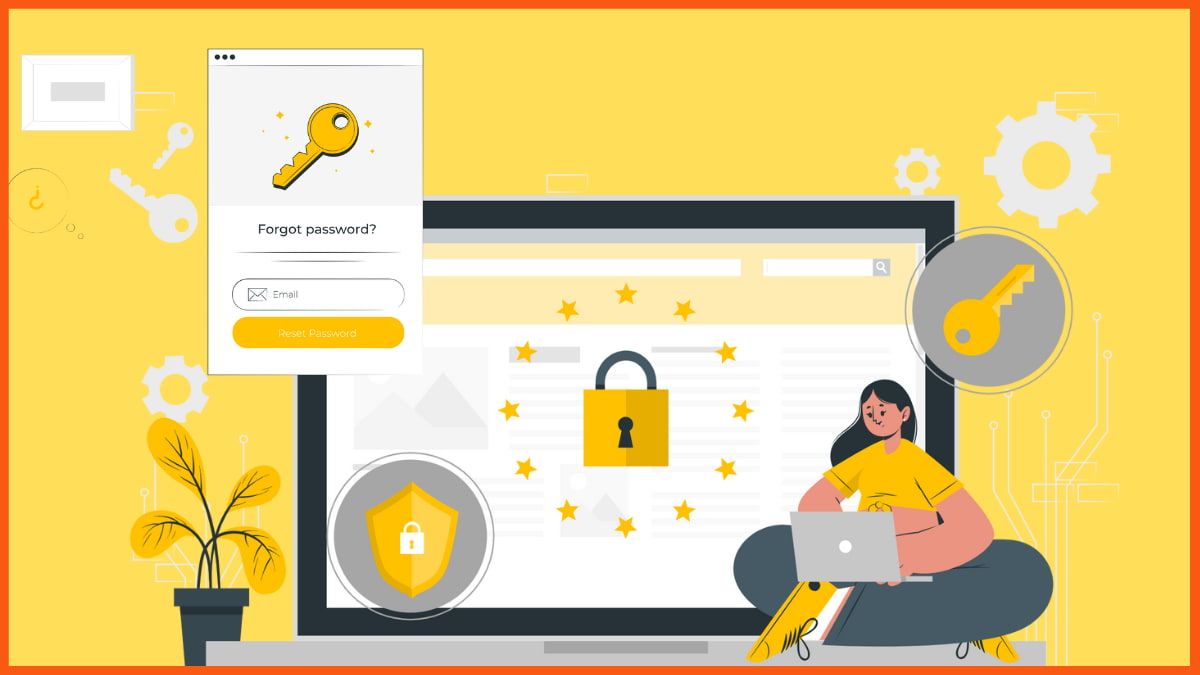Businesses require users to sign up for their websites, newsletters, and loyalty programs. Whichever website you visit, chances are you will be prompted to register an account on their platform so that they can send you updates regularly. This requires a unique username and password. Whether it’s logging into your online bank or eCommerce store, every digital portal requires valid credentials to give quick access to these accounts. This will help in preventing Password Manager scams for your online business.
While that increases security for companies and customers, it comes with its share of drawbacks. Remembering a slew of passwords for different websites can be tricky. To avoid forgetting these details, people make the mistake of keeping the same password for all accounts. This can result in security breaches. If an attacker makes an accurate guess for your password, they will try the same for sensitive accounts, like your bank or Active Directory.
A password manager is an efficient and smart way to mitigate the risk of security breaches due to reused passwords for multiple profiles. Let’s see what password managers are, how safe are they, and whether your business needs one.
What Are Password Managers?
A password manager is a tool that stores your login credentials for multiple applications and platforms in one place. It can sync your username and passwords for these platforms across different devices connected to the same network. For example, a password manager in your organization can work on employees’ smartphones, workstations, and other devices that they use to log into their business accounts. This can also be used to share login information with employees and businesses in a secure environment.
In addition to storing, these apps create a new and unique password for each online service you log into. This ensures that you have a unique and strong password for each account and they are stored safely. But the increased risk of password manager scams makes people wonder whether these apps are safe. Or, is it safer to reuse the password for different online services than storing them in password managers? Let’s first understand the reasons businesses need a password manager.
Reducing The Risk Of Domino Effect
According to Cloudnine, around 81% of data breaches occurred due to weak passwords. Managing different passwords and usernames can be a hassle. To avoid that, people tend to reuse passwords across accounts, increasing the risk of cyberattacks. You may have heard of the domino effect. When an attacker hacks your password to a specific account, they will use automated tools to run the login combination across all financial, social media, and other accounts.
If it matches, they will get immediate access to your profile. Another problem is that weak passwords can raise the risk of cybercrimes. Attackers can easily crack weak passwords and gain access to your other accounts.
Prevents Phishing
If you have used password managers, you might be aware of the auto-fill option that pops up on the screen as you enter your username and password. This auto-fill option enters your saved password from the manager automatically, saving you the time of copying them manually. It also reduces the risk of phishing attacks, as no matter how professional or well-developed a phishing website looks, it won’t match the website URL saved in your password manager. So, you can rest assured that you won’t enter your login credentials on a malicious website.
That said, password managers do not prevent phishing attacks completely. There is still a chance the attacker could send malicious links over email, redirecting users to a malware-infected website. But, having a password manager can contribute to your broader network security strategy.
They Boost Business Efficiency
Apart from cybersecurity benefits, password managers can boost your business’ efficiency by storing all passwords in a central location. With your passwords stored safely, you no longer have to reset them or encounter locked accounts because of several wrong password attempts.
Besides that, you don’t have to guess new passwords for each new account. With businesses having hundreds of accounts on different platforms, a password manager optimizes the management of the unique login credentials for each platform, while saving them the time to create a new password. It auto-generates a strong password. It also boosts employees’ productivity by giving them a simple option to share their passwords with different users across devices connected to the organization’s network.
Are Password Managers Safe?
Password managers are designed to offer the highest level of security. They use encryption technology to protect passwords. This implies that if a breach ever occurs and the attacker gets access to the password manager, they won’t be able to decipher the encrypted credentials.
To make it more secure, consider installing an antivirus program. You must also use strong paraphrases to prevent your password from getting leaked. Password managers are safe and a must-have for businesses of all sizes.
